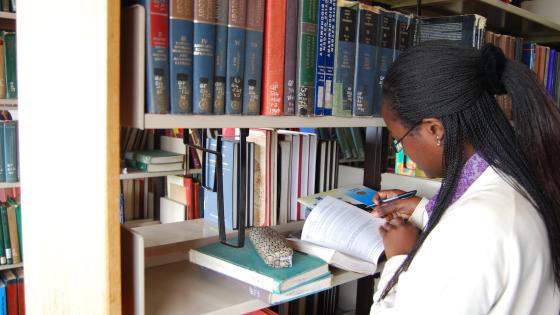Since time immemorial, parents have struggled with the question of how best to raise their children. For most of history, the experts of the day strongly advised a firm hand. The Bible states that “he who spares the rod hates his son, but he who loves him is careful to discipline him”, Proverbs 13:24), and Plumb (1975) notes that of “two hundred counsels of advice on child-rearing prior to 1770, only three failed to recommend that fathers beat their children”. It was only in the 20th century that the views of education reformers, such as Maria Montessori, gained wide currency, culminating in the popularity of anti-authoritarian education in the 1960s and 1970s. However, recently the tide has been turning again.
In 2011, Amy Chua sparked a heated debate with her book “Battle Hymn of the Tiger Mother” in which she advocates for a strict, rule-oriented model of parenting.1 While the methods promoted by Chua triggered much disagreement, “Tiger Mom” parenting is part of a wider trend towards more involved, time-intensive parenting among the educated classes. Time-use surveys reveal that highly educated parents spend considerably more time on parenting than a generation ago (even though women also spend more time at work; see Ramey and Ramey 2010), and the term ‘helicopter parenting’ (to denote anxious parents permanently hovering over their kids, guiding and protecting them) has gained wide currency.
Parenting style in developmental psychology
In developmental psychology, the broad strategies that parents employ in raising their children are known as ‘parenting styles’. Starting with a seminal contribution by Baumrind (1967), a distinction between three main parenting styles has taken hold: Authoritarian, authoritative, and permissive. As the name suggests, the authoritarian style is one where parents demand obedience from their children and exercise strict control; this style is often associated with corporal punishment. Permissive parents, in contrast, follow a laissez-faire approach and let children make their own choices. The authoritative style is one where parents attempt to influence their children’s choices, but they do so by reasoning with them and by shaping their values, rather than through command and discipline.
An economic explanation of parenting style
Much of the popular literature on parenting is based on the premise that parents don’t know how best to raise their children, and that they need to be educated to adopt the best methods. From this perspective, when parents adopt the ‘wrong’ parenting style, they are making a mistake that is due to lack of information.
In our own research on parenting styles (Doepke and Zilibotti 2014), we are taking a different track that is based on the economic approach to human behaviour. We argue that parents, by and large, know about the pros and cons of different parenting strategies, and that their own choice of parenting style is driven by incentives. With this approach, the research task is not to tell parents what they should do, but to understand the economic incentives that drive what parents actually do.
In our theory, parents have both altruistic and paternalistic feelings towards their children. While parents generally care about their children’s wellbeing (altruism), they may also disagree with some of the choices that their children make (paternalism). For example, parents and children often have different views regarding the optimal level of risk taking (say, in motor traffic or in experimenting with recreational drugs). As a result, parents have an incentive to attempt to influence their children’s choices in life.
There are two types of strategies available to influence kids.
- First, parents can use coercion, i.e., they can forbid certain behaviours or impose specific choices on their children. This approach corresponds to an authoritarian parenting style.
- Second, parents can use persuasion, i.e., they can attempt to shape children’s values and preferences in such a way that children will make on their own accord the choices desired by the parent.
For example, parents may instil in their children a strong work ethic or an aversion to recreational drugs. This approach amounts to authoritative parenting.
- As a third option, parents can abstain from influencing children altogether and let them make their own choices, which is the permissive parenting style.
In our theory, permissive parenting is not a form of neglect, but rather a parenting strategy whereby parents respect their children’ choices even when these do not conform to the parents’ wishes.
The costs and benefits of alternative parenting styles
From the perspective of the parents, engaging in one of the intensive parenting styles that aim to control the children’s behaviour (authoritarian and authoritative) comes with costs. Some of these costs are direct (the time and effort spent on controlling the children or on instilling the appropriate values in them), and others are indirect (parents care about their children, and take into account the suffering that aggressive parenting imposes on the kids). A first prediction of the economic theory of parenting style is, therefore, that parents will be willing to bear the costs of intensive parenting only if the return is sufficiently high. So what is the return to intensive parenting?
The benefit of intensive parenting (authoritarian or authoritative) is that the children are more likely to engage in the choices that the parents consider appropriate. The return, therefore, depends on the stakes, i.e., the extent to which it matters whether the children make the ‘right’ or ‘wrong’ choices from the parents’ perspective.
When it comes to risky adolescent behaviours, for example, one factor that matters is the riskiness of the environment, i.e., the extent to which adolescents can get into trouble by taking dangerous actions. In an urban neighbourhood characterised by gangs, violence, and wide availability of drugs, making the wrong choices and keeping the wrong company can ruin a child’s life, and realising what is at stake, concerned parents may intervene strongly (or alternatively, move to a different neighbourhood). In contrast, in a safe rural area lacking such temptations, parents can easier afford a relaxed approach.
The role of the return to education and inequality
While many parents worry about juvenile risks, we believe that the returns to effort in education and work during adolescence are even more important. A seemingly universal area of disagreement between parents and children is the trade-off between working hard for school and for one’s career versus having fun with friends and other immediate enjoyments. Few parents wish that their kids blew off homework more often in exchange for some instant pleasure. This conflict can be interpreted as a difference in time preference – parents worry more about the long-term consequences of children’s behaviour (such as studying for school) than do the kids themselves. Hence, many parents push their children towards harder work, either through coercion (such as ‘grounding’ children, i.e., not allowing them to spend time with friends) or through sustained indoctrination with a strong work ethic and a striving for success.
The return to pushing children hard consists of the increased likelihood that they will do well later in life. How important this is to parents depends crucially on the degree of economic inequality, and in particular on the return to education. In an economy where education and effort are highly rewarded and where people with little education struggle, parents will be highly motivated to push their children hard.
- Thus, we expect economic inequality to be associated with intensive (authoritarian and authoritative) parenting styles.
In contrast, in an economy where there is little inequality and artists and school dropouts earn only slightly less than doctors and engineers, parents can afford a more relaxed attitude, and permissive parenting should be more prevalent.
Cross-country evidence on intensive versus permissive parenting
In our research, we show that cross-country data on parenting styles are consistent with the prediction of a link between parenting and income inequality. Parenting style can be measured using the World Value Survey, where people are asked which attitudes or values they find most important in child rearing. Here, emphasising the values of ‘imagination’ and ‘independence’ in rearing children would correspond to a more permissive parenting style, whereas authoritarian and authoritative parents would be more likely to insist on the importance of ‘working hard’. Figures 1 to 3 show the association of these values (i.e., the fraction of parents in a given country that consider the value important) with a measure of income inequality, namely the Gini index (higher values correspond to more inequality). As predicted by the theory, across OECD economies parents in more unequal countries place more emphasis on hard work, and consider imagination and independence to be less important. Conversely, Scandinavian parents emphasise the value of imagination and independence, consistent with the casual observation that in these countries children enjoy more leeway than their peers in Southern Europe and the US. The pattern also holds up for developing countries. As an example, Figure 4 adds China to the picture – a country with pronounced economic inequality. As predicted by the theory, in China emphasising the importance of hard work is almost universal among parents.
Figure 1. Income inequality measured by Gini coefficient versus importance of emphasising ‘imagination’ in raising children across OECD countries

Figure 2. Income inequality measured by Gini coefficient versus importance of emphasising ‘independence’ in raising children across OECD countries

Figure 3. Income inequality measured by Gini coefficient versus importance of emphasising ‘working hard’ in raising children across OECD countries

Figure 4. Income inequality measured by Gini coefficient versus importance of emphasising ‘working hard’ in raising children across OECD countries and China

The rise of authoritative parenting
Regarding the recent rise of more intensive parenting in Western countries (‘Tiger Mom’, ‘helicopter parents’, etc.), our theory offers a straightforward explanation. In the 1960s and 1970s, when anti-authoritative, laissez-faire parenting reached the peak of its popularity, economic inequality was also at an all-time low. Given low returns to education, there was little reason for parents to exert major efforts to push their children. The last 30 years, in contrast, have seen ever-rising inequality combined with increasing returns to education. Children who fail to complete their education can no longer look forward to a secure, middle-class life, and consequently parents have redoubled their efforts to ensure their children’s success.
A final question is why among the intensive parenting strategies, modern parents increasingly rely on the subtle indoctrination methods of the authoritative style, rather than the command-and-control approach of an authoritarian parent. The methods of the ‘Tiger Mom’ notwithstanding (which have both authoritarian and authoritative elements), traditional authoritarian parenting with its ample use of corporal punishment is becoming less common in many countries. From the economic perspective, the advantage of the authoritative approach is that the children, once successfully indoctrinated, no longer need to be monitored to do the right thing – they will implement the parent’s preferred choices on their own accord. Hence, authoritative parenting is more attractive than the authoritarian style when monitoring is difficult or impossible. We believe that the authoritarian style is declining because the economic returns to the independence of children have risen. The crucial phase of education is now often the college or post-graduate level rather than elementary or secondary school. Once off to university, children are no longer under the direct control of their parents, and they will succeed only if the appropriate values (such as valuing hard work and academic success) have already been instilled in them.
The future of parenting
Given that the spread of higher education is unlikely to reverse, our theory predicts that authoritarian parenting will continue its current decline; a return to the tough methods advocated by the Bible is unlikely. Regarding permissive versus authoritative parenting, the evolution of the return to education is what matters. If the march towards higher inequality continues, the current era will mark the beginning of a sustained trend towards ever pushier parenting. If, on the other hand, today’s inequality trends prove to be an aberration and we return to the less unequal times of the 1970s, future children (and their parents) will be able to enjoy a relaxed childhood once more.
References
Baumrind, D (1967), “Child Care Practices Anteceding Three Patterns of Preschool”, Genetic Psychology Monographs 75 (1): 43–88.
Chua, A (2011), Battle Hymn of the Tiger Mother, Penguin Books, New York.
Chua, A (2011), “Why Chinese Mothers Are Superior,” Wall Street Journal, 8 January
Cunha, F, and J J Heckman, “The Economics and Psychology of Inequality and Human Development”, Journal of the European Economic Association 7 (2–3): 320–64.
Doepke, M, and F Zilibotti (2008), “Occupational Choice and the Spirit of Capitalism”, Quarterly Journal of Economics 123 (2): 747–93.
Doepke, M, and F Zilibotti (2013), “Culture, Entrepreneurship, and Growth.” Chapter 1 of Handbook of Economic Growth, edited by P Aghion and S N Durlauf, Volume 2A, Elsevier.
Doepke, M, and F Zilibotti (2014), “Parenting with Style: Altruism and Paternalism in Intergenerational Preference Transmission”, CEPR Discussion Paper 10029.
Dohmen, T, A Falk, D Huffman, and U Sunde, (2012), “The Intergenerational Transmission of Risk and Trust Attitudes”, Review of Economic Studies 79 (2): 645–77.
Fernandez-Villaverde, J, J Greenwood, and N Guner (2014), “From Shame to Game in One Hundred Years: An Economic Model of the Rise in Premarital Sex and its De-Stigmatization”, Journal of the European Economic Association 12 (1): 25–61.
Heckman, J J, R Pinto, and P A Savelyev (2013), “Understanding the Mechanisms through Which an Influential Early Childhood Program Boosted Adult Outcomes”, American Economic Review 103 (6): 2052–86.
Plumb, J H (1975), “The New World of Children in Eighteenth-Century England”, Past & Present 67 (1): 64–95.
Pollock, L (1983), Forgotten Children: Parent-Child Relations from 1500 to 1900, Cambridge University Press.
Ramey, G, and V A Ramey (2010), “The Rug Rat Race”, Brookings Papers on Economic Activity, Spring 2010, 129–76.
Straus, M A, and J H Stewart (1999), “Corporal Punishment by American Parents: National Data on Prevalence, Chronicity, Severity, and Duration, in Relation to Child and Family Characteristics”, Clinical Child and Family Psychology Review 2 (2): 55–69.
Footnote
1 In an article published in the Wall Street Journal under the title “Why Chinese Mothers Are Superior” she writes: “A lot of people wonder how Chinese parents raise such stereotypically successful kids. ... Well, I can tell them, because I've done it. Here are some things my daughters, Sophia and Louisa, were never allowed to do: attend a sleepover; have a playdate; be in a school play; complain about not being in a school play; watch TV or play computer games; choose their own extracurricular activities; get any grade less than an A; not be the No. 1 student in every subject except gym and drama; play any instrument other than the piano or violin; not play the piano or violin.”






